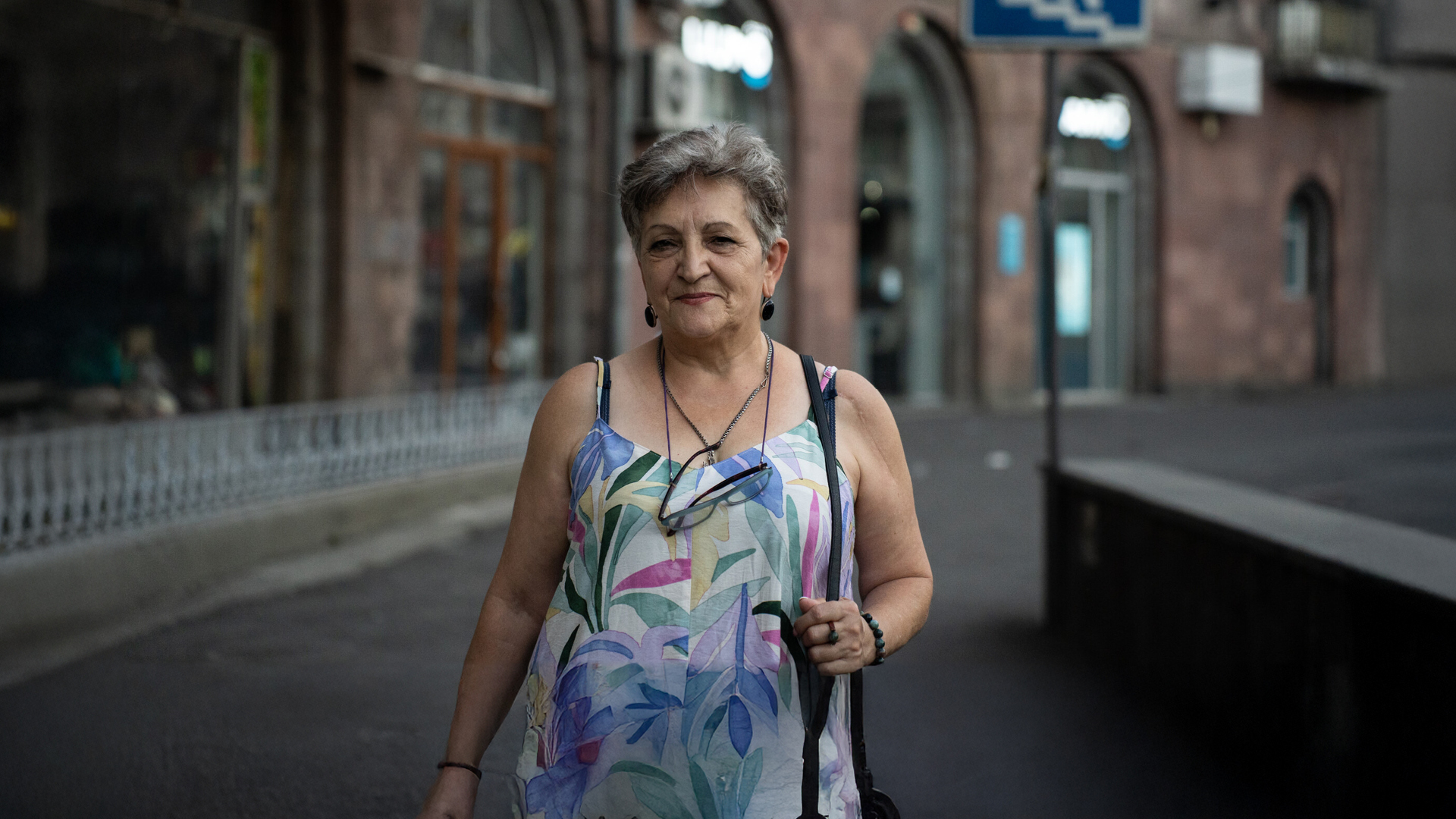Refugees from Nagorno-Karabakh who arrived in Yerevan and Goris, Armenia, speak to iMEdD.
According to the UNHCR data, Armenia has experienced an influx of over 115,000 refugees following the hostilities in Nagorno-Karabakh in September 2023. Approximately 66% of the refugees are women and children. By the end of March 2024, over 78,000 have been issued refugee cards under temporary protection and some 1,400 have applied for citizenship. Not all of them wish to stay in Armenia.
Irina Grigoryan, 72, teacher
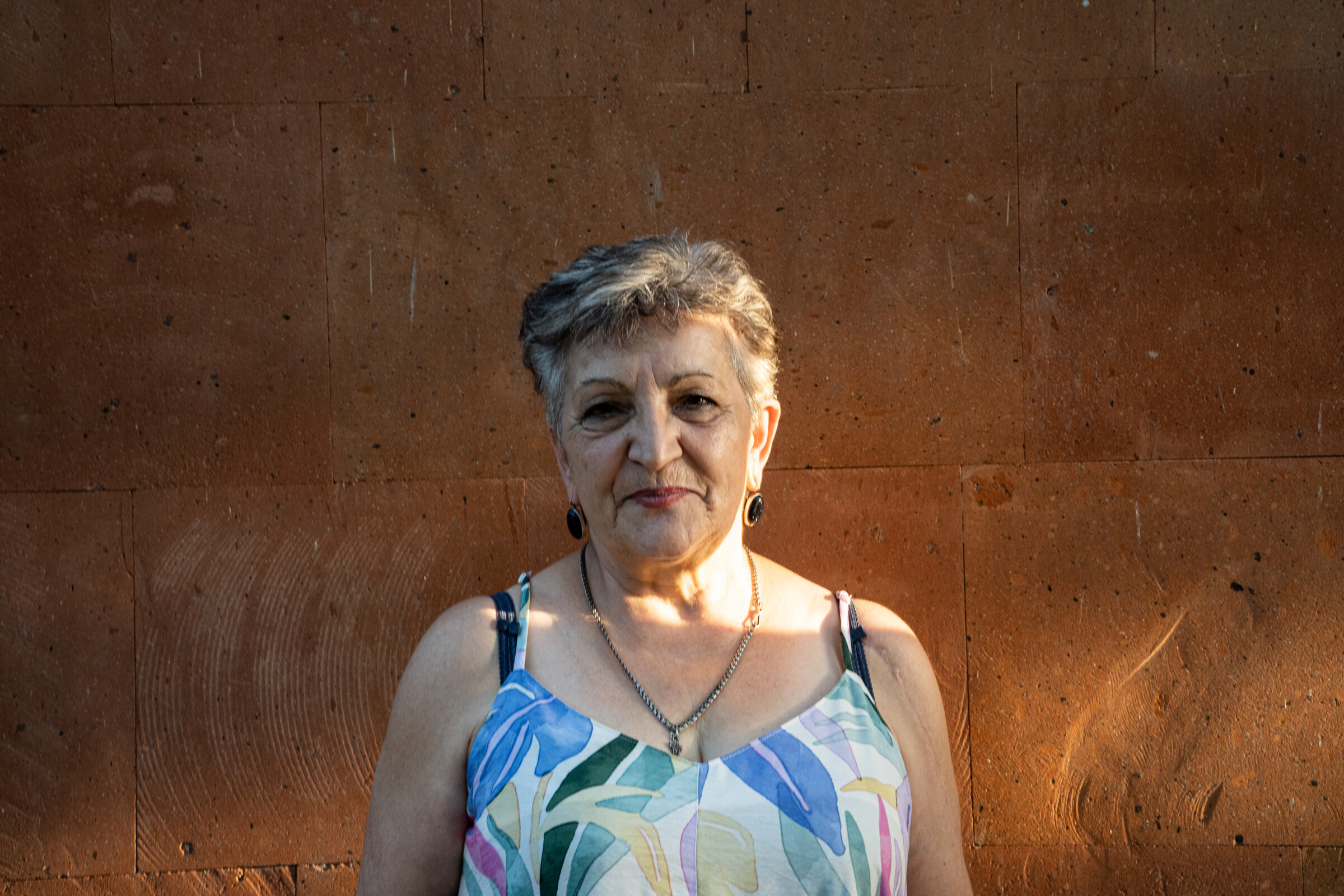
The first interview took place at Komitas Park in Yerevan with Irina, a teacher living in Stepanakert. Her granddaughter, who accompanied her, assisted with the translation. “I was waiting for some kind of miracle. Well, that miracle did not happen. On the 28th of September, my son called and said: “Mom, get ready, we are leaving tomorrow morning”. You don’t know what to take and what to leave, because it’s a car, and what can you fit in that car? You can’t fit your whole life in one car […] I just miss my city. We were satisfied with the little we had, but we were very happy.”
Gohar Tonyan, 29, obstetrician-gynecologist
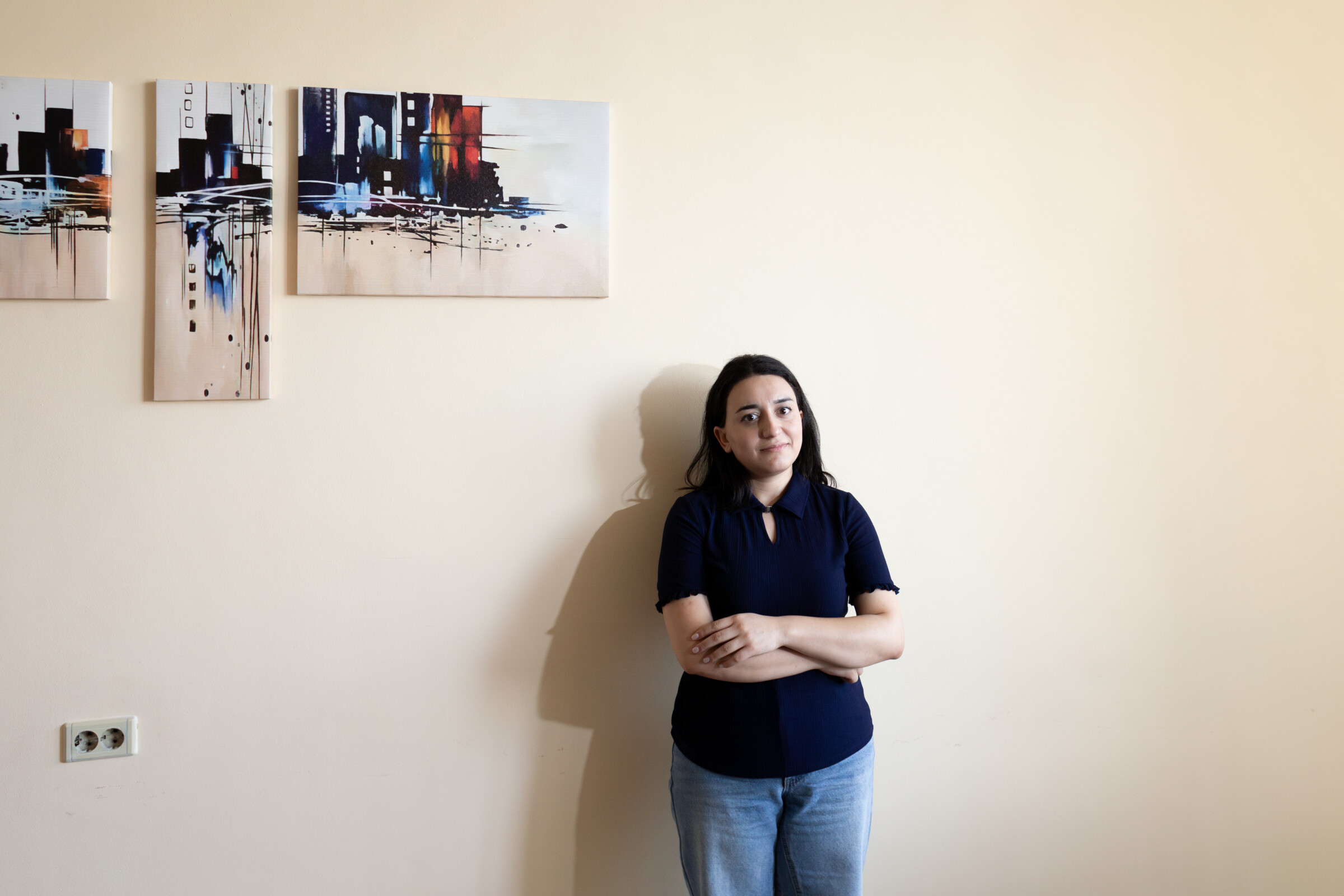
In Yerevan, Gohar described the situation in Nagorno-Karabakh hospitals during the blockade. “Since we didn’t have such specialists in Artsakh who performed amniocentesis, genetic research is done only by one or two centers in Armenia, and they send the research abroad. We used to send our patients to Yerevan, to perform it here. It was right before the blockade, a patient came back with that genetic test, she reached Artsakh and the road was closed. Fortunately, we got good results from her test […] The thing was, were the pregnant women prepared to travel? We had cases where they refused, they stayed in Artsakh.”
Anna Avanesyan, 37, confectioner
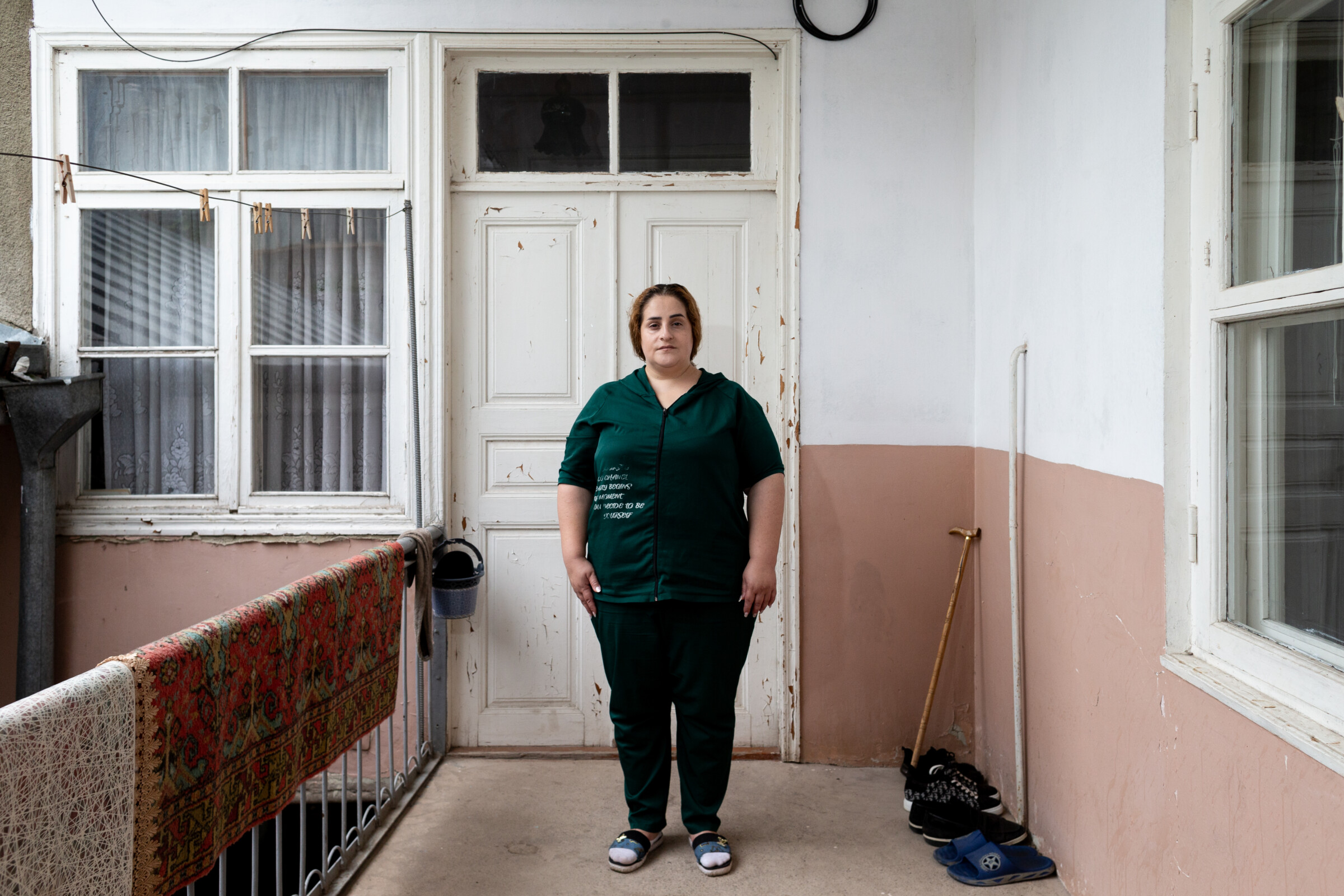
In Goris, Anna is trying to recover, living with the hope of returning to Nagorno-Karabakh, where her brother was killed during the Azeri attack. “On the 23rd of September, they found his remains. I didn’t know that he was killed. Everyone told me that he was injured, but all my family members knew […] To tell the truth, I did not want to come. My brother died in September. I buried him. I didn’t want to come here […] I want to see the future of my children either in Artsakh or outside of Armenia, because the same fate of Artsakh awaits Armenia.”
Gayane Balayan, 43
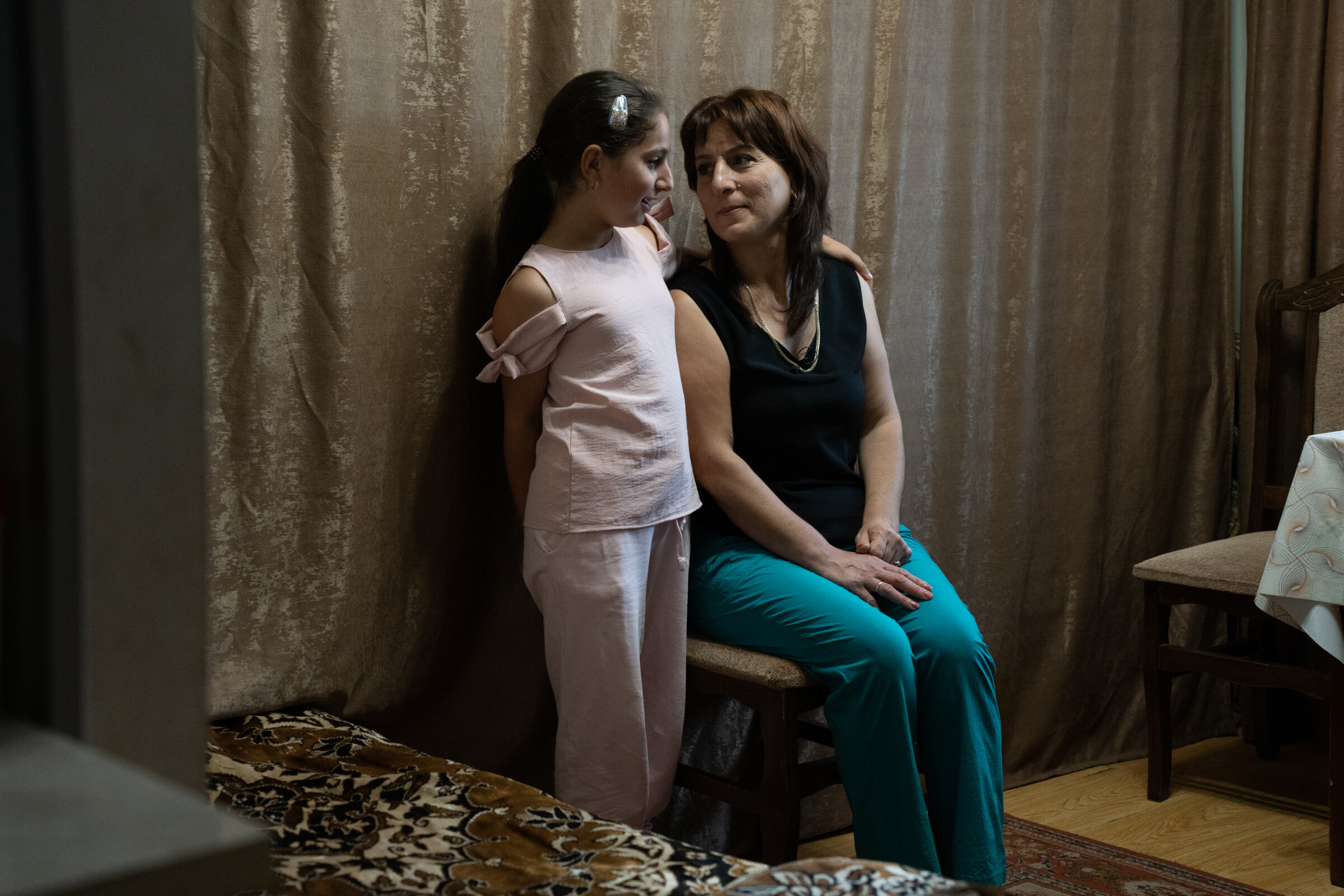
In Goris, Gayane wants to start a new life for herself and her daughter. “My daughter, who opened her eyes when in arrived in Goris, said: “Mama, look at the chips, they are already selling chips in the stores […] I have a secret dream that one day we can go to Artsakh. But not within Azerbaijan, that’s clear. But it is a secret hope. Just a small house, even if it’s a one-room house, so I don’t pay rent, I’ll live here in Goris […] I will not go anywhere. I will work, I will take care of my child. I don’t want to go to Russia.”
Watch the video: “Underreported: the Nagorno-Karabakh displaced” here.
